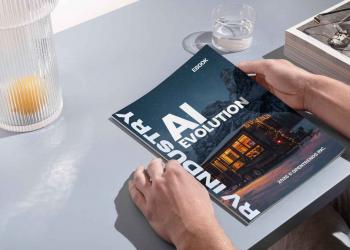
How Mobility Tier 1 Suppliers Can Thrive in the EV Era
Suppliers must change or face obsolescence as the mobility and auto industry transforms. Tier 1 suppliers face numerous challenges that require new product development and software engineering approaches. This article offers practical solutions to help many Tier 1 suppliers overcome key challenges and succeed in the electric vehicle market.
1. EV Adoption and the Rise of Software-Defined Vehicles
- Embrace Simulation: Utilize fast prototypes and simulation software to design and test critical components like battery management systems and power electronics. This accelerates development and reduces costs.
- Partnerships: Collaborate with OEMs and technology providers to develop innovative electric vehicle solutions.
- Prioritize Software Dev: Invest in agile methodologies, software testing, and DevOps to deliver reliable software solutions.
2. Overcoming Integration Difficulties
- Modernize IT Infrastructure: Employ cloud-based systems and leverage cloud architecture expertise to ensure seamless integration.
- Utilize data analytics to optimize operations and identify areas for improvement.
3. Turning Supply Chain Disruptions into Opportunities
- Leverage IoT: Implement IoT platforms to gain real-time visibility into your supply chain and proactively address disruptions.
- Embrace Predictive Analytics: Use data-driven insights to predict potential issues and lessen risks. We followed this approach in our collaboration with a leading engineering firm to develop an IoT platform for boarding systems.
4. Optimizing Costs
- Adopt PLM: Implement Product Lifecycle Management software to streamline product development, automate tasks, and reduce costs.
- Alternative Materials: Explore lower-cost materials that offer comparable performance.
5. Prioritize Cybersecurity
As vehicles become more connected, the risk of cyber-attacks grows. Safeguarding vehicles is crucial for maintaining the integrity of the automotive industry.
- Invest in IDPS: Deploy intrusion detection and prevention systems to monitor suspicious activity and safeguard against cyber threats.
- Secure Communication: Implement robust encryption protocols like Transport Layer Security (TLS) to protect sensitive data transmissions.
SEIDOR Opentrends: Your Partner in the EV Era
We understand the complexities of the EV market. Our automotive specialists are equipped to help you navigate these challenges and emerge stronger. We offer expertise in agile development, infotainment UI design, prototyping, and complex system integration, backed by a proven track record of success. Click the button below to discuss your needs and learn how we can help you thrive in the electric vehicle revolution.
Talk to our Automotive experts
FAQs about automotive tier 1 suppliers' challenges
What is an automotive tier 1 supplier?
A tier 1 automotive supplier directly supplies major components or systems to automotive manufacturers.
What are the key considerations for Tier 1 suppliers in addressing the challenges of the EV era?
When addressing the challenges of the EV era, Tier 1 suppliers should consider factors such as EV technology integration, developing new software systems, complex system integrations, supply chain disruptions, cost pressures, and cybersecurity risks. By leveraging simulation software, agile development methodologies, cloud expertise and more, Tier 1 suppliers can overcome these challenges and adapt to the evolving automotive industry. Collaborating with experienced professionals and seeking tailored solutions can also greatly assist in successfully navigating the transition to the EV era.
How are automotive tier 1 suppliers responding to current challenges?
Automotive tier 1 suppliers are responding to these challenges in several ways, including
- Investing in new technologies such as digital prototypes, 3D printing and AI, to help them reduce costs and improve efficiency.
- Expanding their global reach to tap into new markets and reduce reliance on one market.
- Partnering with other companies such as technology companies and universities, to share resources and expertise.
What are the future trends for automotive tier 1 suppliers?
The future trends for automotive tier 1 suppliers include
- The continued growth of EVs: The automotive industry is shifting towards electric vehicles. This will create new opportunities for automotive tier 1 suppliers, who will need to develop new technologies and components for electric vehicles.
- The increasing importance of cybersecurity in the automotive industry. This is due to the growing use of connected cars, which are vulnerable to cyberattacks. Automotive tier 1 suppliers may need to invest in cybersecurity to protect their products and customers.
- The need for greater sustainability: The automotive industry is pressured to become more sustainable in its processes and products due to concerns about the environment. Automotive tier 1 suppliers will need to develop more sustainable products and processes.





